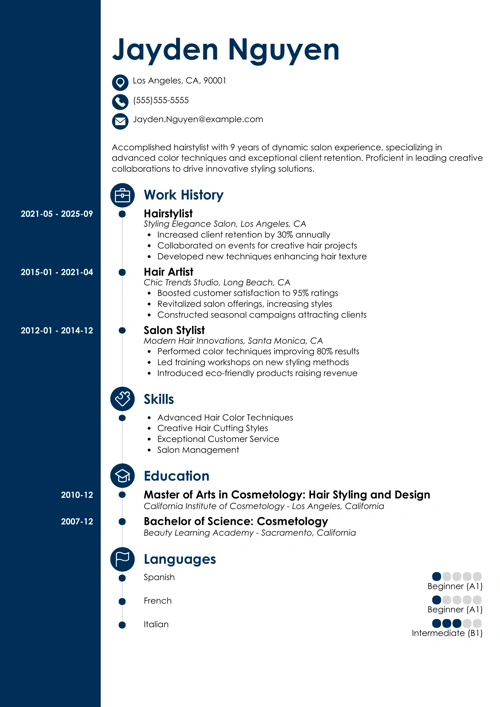The diploma on your wall is a reward for all the sleepless nights devouring books in preparation for exams. But there’s much that universities and colleges didn’t teach you when they should have. Most professionals learn that the hard way when confronted with workplace situations that weren’t in their textbooks.
I interviewed career expert Toni Frana to get her insights on what your education didn’t teach you but should have. Her professional insight will help you overcome unexpected hurdles in your career. But first, let me introduce my guest.
Meet Career Expert Toni Frana
With almost two decades of experience, Toni Frana (below) uses her expertise to help professionals prepare for interviews, learn to write resumes and make cover letters, change careers, negotiate salaries, and more. She relies on insights gathered working in various industries and roles.

After graduating Cum Laude in communications at the University of St. Thomas, she became a Regional Director at Sylvan Learning Centers, opened a drama school, Drama Kids International, and became a career coach.
These are only some of the highlights of her career trajectory, which was anything but a straight line. But she learned to embrace change and make the most of it, leading her to a critical conclusion: Her college didn't necessarily prepare her for the many career twists and turns ahead. She observed the same pattern when coaching her clients, making her the perfect person to share some insights on the topic. Read below a glimpse of what she shared.
Five Key Takeaways
My conversation with Toni Frana covered the educational gaps in academia. Here’s a glimpse of the insights you’ll read in this article:
- Career Flexibility Is Paramount: Life's twists can steer your career goals into unexpected, often better, directions than you expected. Be open to that.
- Soft Skills Are Overlooked in Academia: Universities stress hard skills, but soft skills like communication, negotiation, and self-promotion, which are equally important and vital for real-world success, are often not emphasized as much.
- Self-Reflection Fuels Growth: Regular self-assessment and clear goal-setting help you identify soft skill gaps, turning setbacks into opportunities for improvement.
- Quality Networking Matters: Building genuine relationships is more valuable for career guidance than an extensive, superficial network.
- AI as a Soft Skills Ally: Tools like ChatGPT can aid introverts in refining communication and self-awareness by offering a safe space for brainstorming and reflection.
Read on to learn more about what college should’ve taught you but didn’t.
Toni Frana’s Career Wisdom in 11 Questions
1. What was the most important lesson you learned through experience that your university should have covered?
I thought I knew what my career would look like. I believed I'd work for a company, starting in an entry-level role. I'd move up and stay in one company for many years. But that's not what happened, and it turned out much better.
Essential data: Research shows that only 46% of graduates develop careers in their studied field, highlighting the importance of being prepared for your ideal career not happening.1
You might think you know what your career will look like, but you should prepare for it to be different, which doesn't necessarily mean bad or worse.
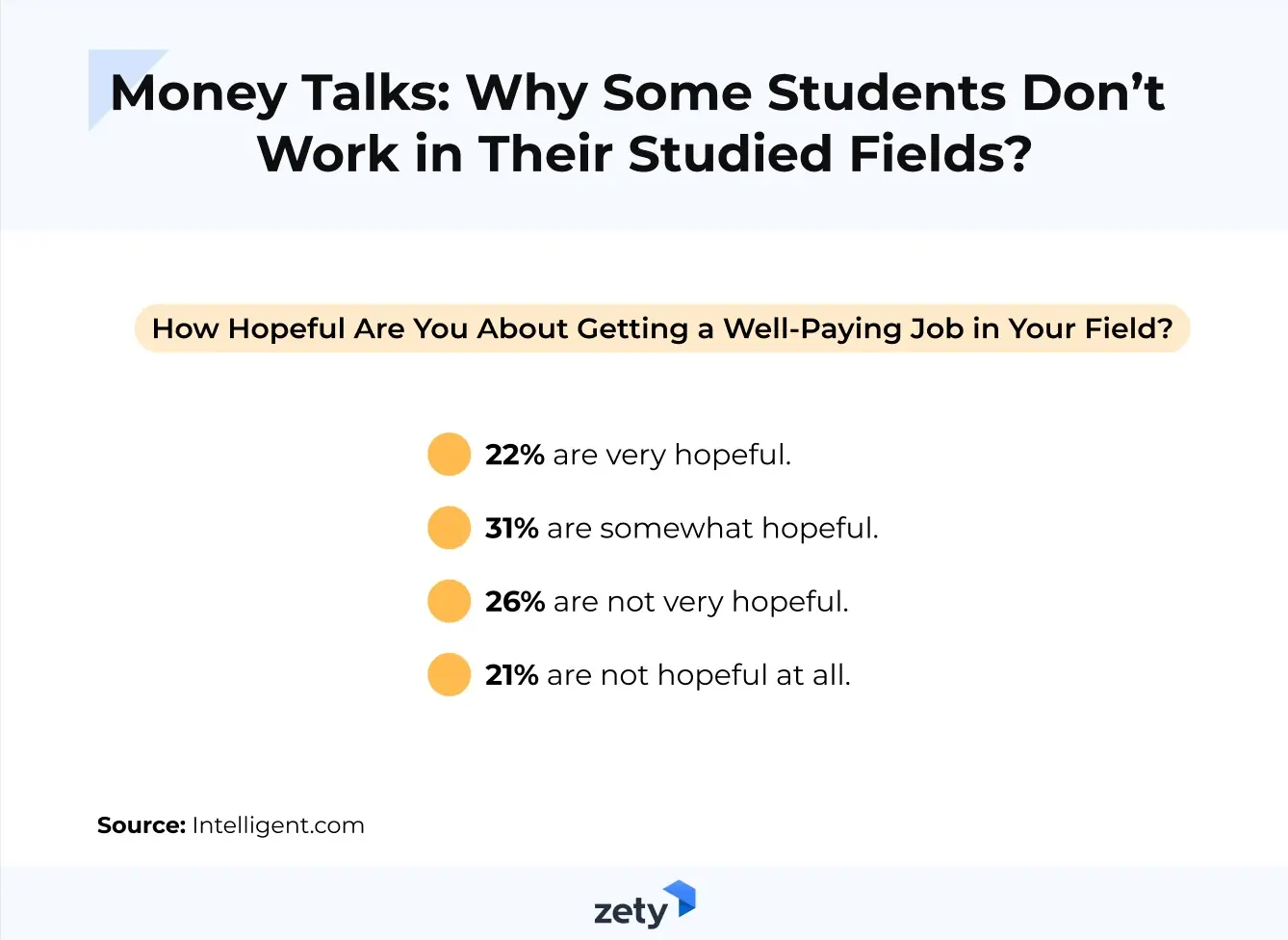
2. Some people are emotionally attached to their idealized future. How can you detach from that and open yourself to other opportunities?
In my case, it was a necessity. When I married, my husband was in the military, and we moved many times. Because of my situation, I knew I’d have to adapt my career plans. But regardless of your situation, you must take ownership of your career by being proactive.
Be flexible and adaptable in your roles. Take opportunities and create new ones by building relationships, learning new things, and asking questions. That way, you can gradually explore different directions. It doesn’t have to be an abrupt change.
Essential data: Only 20–25% of workers are “internal entrepreneurs,” which means employees who propose and execute new ideas.2 So, less than a quarter of professionals expose themselves to new knowledge and experiences that could show a new potential career path.
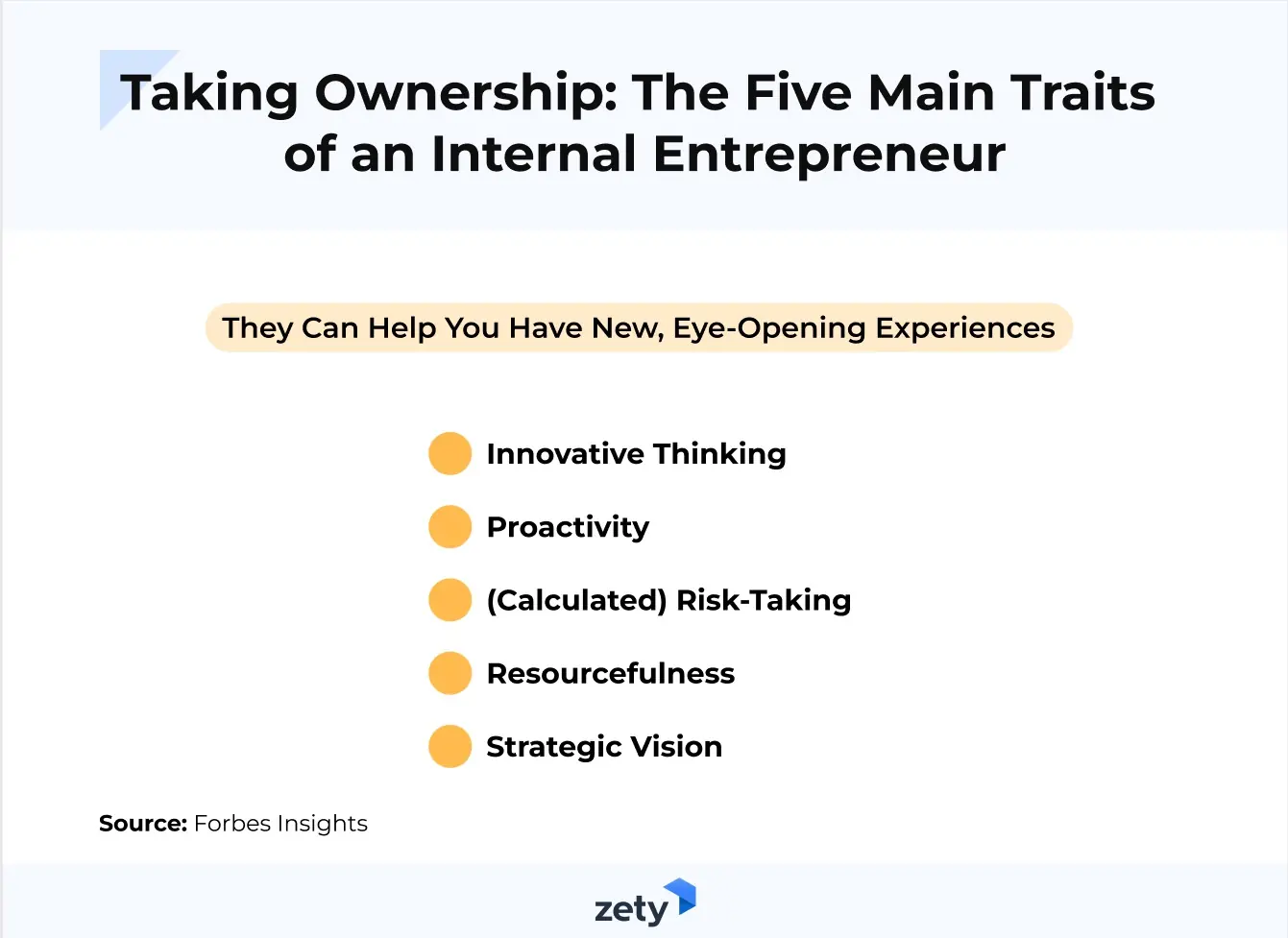
3. How can universities prepare students for the possibility of a drastically different outcome in their careers?
Universities could also focus on soft skills like communication skills, building relationships, problem-solving, negotiation, etc. By developing these soft skills, you’ll naturally also better understand yourself and your aspirations, helping you identify and pursue different career paths.
Professors could introduce soft skills as a complement to the hard skills students are learning. After all, even in a task-driven role, you interact with people on a team, and soft skills are key to successful professional teamwork. They are just as important.
Essential data: According to the World Economic Forum, the three most important soft skills in 2030 will be creativity, flexibility, and lifelong learning.3 However, only 31% of professionals are creative,4 showing the neglect of soft skills.
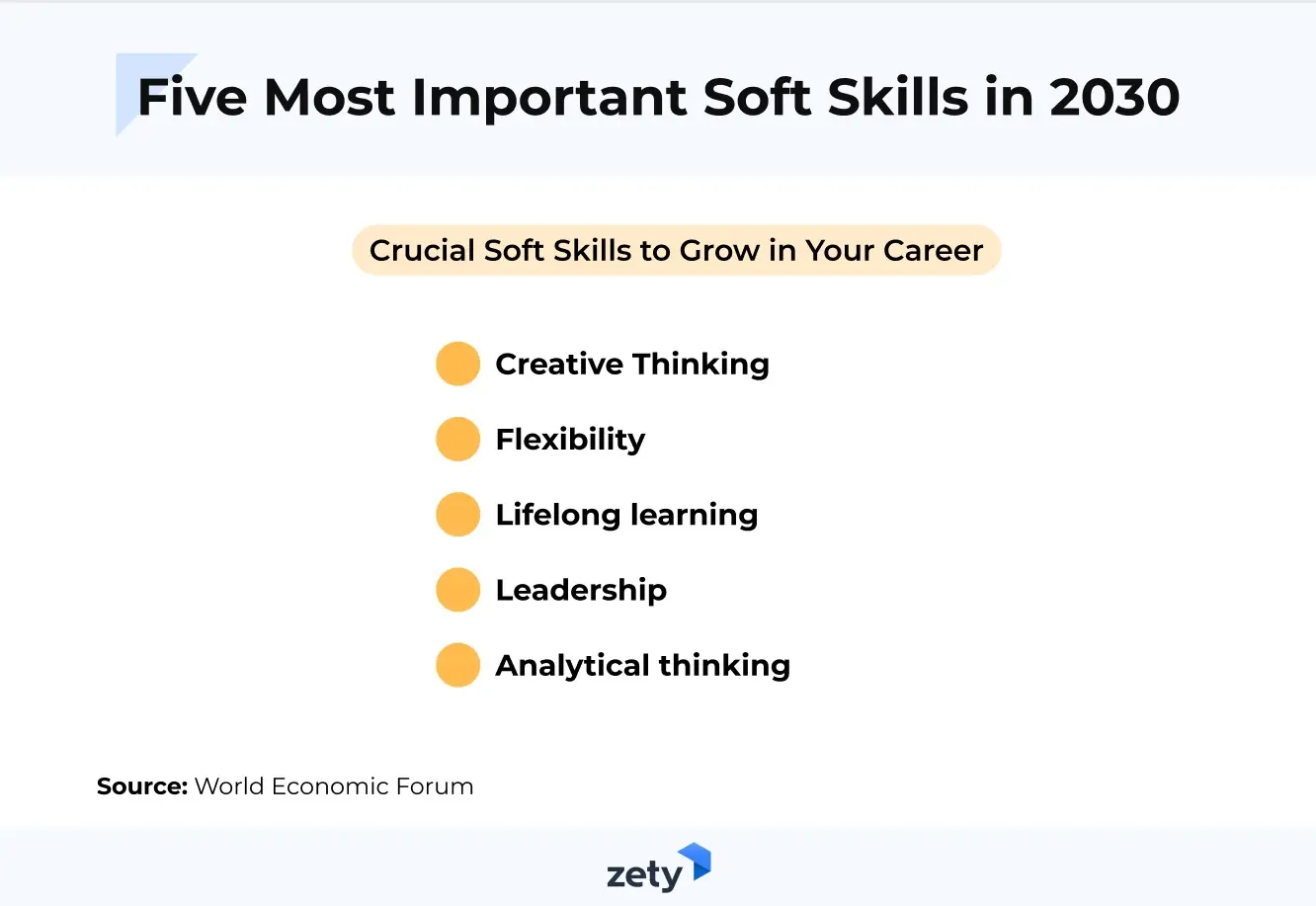
Your social circle can be a place to develop these soft skills. Universities and colleges also offer opportunities through extracurricular activities like clubs, activities, and events, where you can meet people and develop vital competencies through these interactions.
4. Could you give us another example of how not polishing soft skills can hurt your career?
People have a challenging time promoting themselves. You must be confident with your professional accomplishments, experience, and goals when looking for a job or advancing your career. But how can you identify and share them so recruiters understand your value?
That’s where communication and self-knowledge come in. These soft skills teach you to tell your story and identify your selling points. They’re not something universities emphasize in their curriculums, but you can learn by asking yourself crucial questions.
5. What kind of questions can you ask?
What are you good at? That's a good place to start. You should also ask that to other people, but before that, you must ensure you’re comfortable within that space of self-discovery and reflection. Sometimes, it takes jotting down questions to discover your professional profile. For example:
- What am I good at?
- What do I like?
- What are my goals?
- What is my vision?
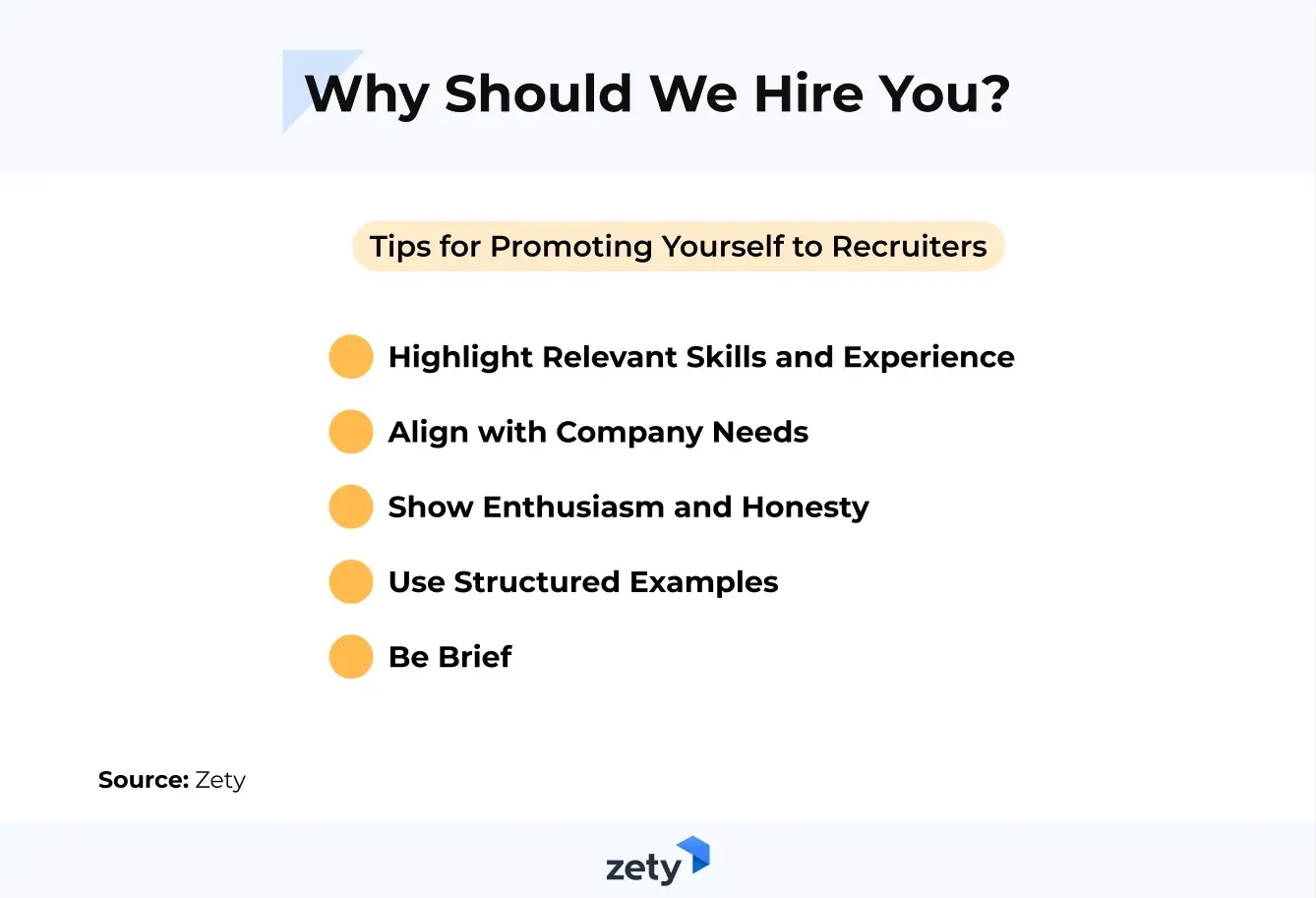
Reading material: Looking for an extensive list of questions to learn more about yourself? You can try The Book of Beautiful Questions: The Powerful Questions That Will Help You Decide, Create, Connect, and Lead by Warren Berger.
Answering these questions will also evolve into self-reflection, benefiting your career long-term. You can continue asking them throughout your professional life to ensure you are doing something fulfilling and growing at the desired rate.
6. How can you identify that you need to work on soft skills?
It’s about goals. If you have clear goals, whenever a hiccup happens, you can stop and self-reflect about what you could’ve done differently and adjust your soft skills from there. It’s a process, and it’s about experience.
Even if you start your career thinking everything is great and that you don't need to improve anything, as you go through life and your career, something will happen that will make you think that it could’ve gone better, starting self-reflection.
Essential data: Experts have reported on Psychology Today that people often overestimate their abilities at the start of a learning process. Only through experience do they realize they need to improve a few things, and listening to feedback is crucial to such a realization.5
That’s how you start to build that career resilience and things that will help further develop a professional throughout their life.
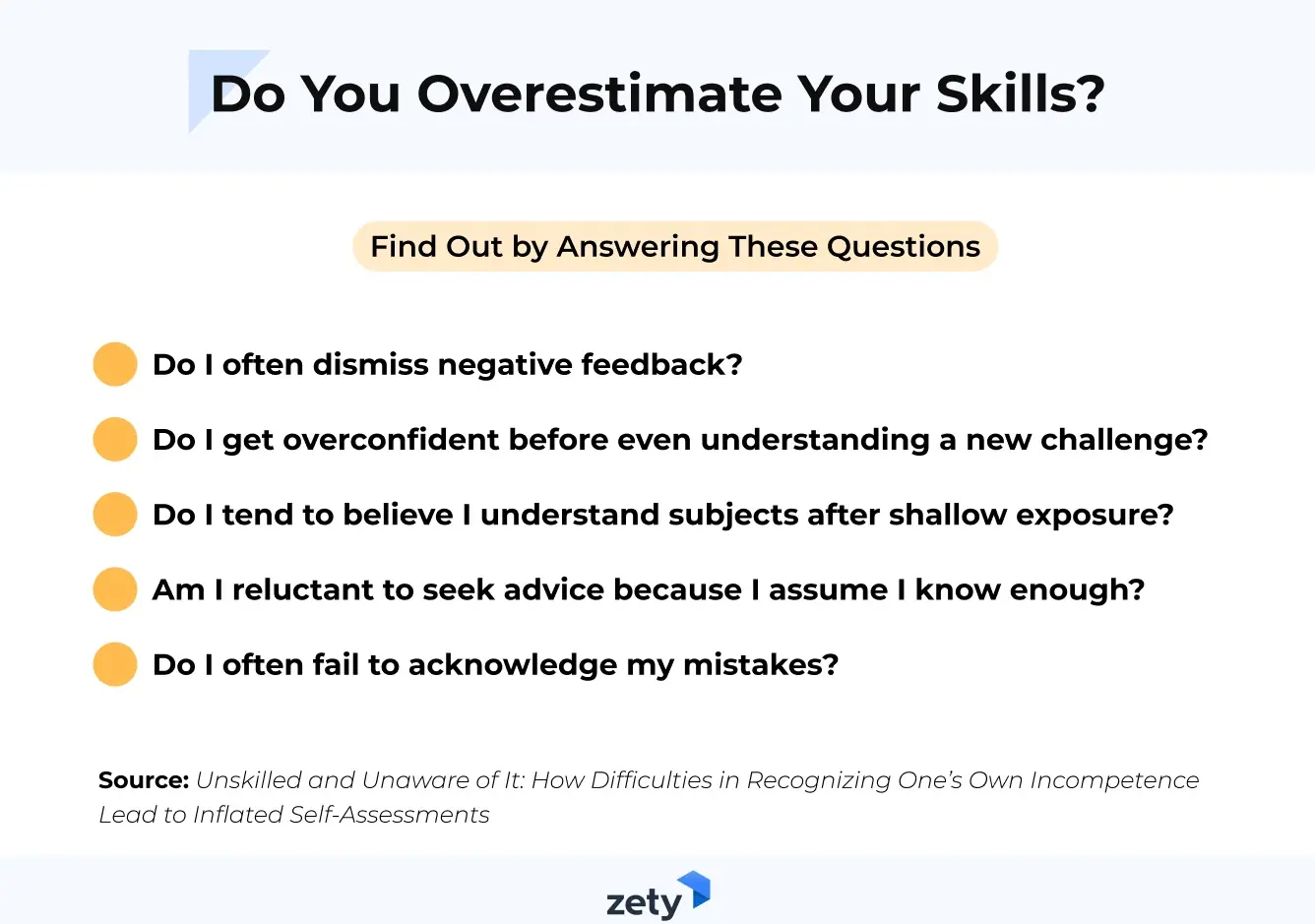
7. Who should you ask for an opinion?
It’s all about building relationships and maintaining them throughout your career. Let's say you're a recent college graduate. You have all your classmates with whom you were in your major classes. If you were in any social organization, this is how you're building your network.
They also know people you can do informational interviews with or who you can get an introduction to, which would expand your network to more people who know you as you develop those relationships.
As you grow in your career, you can do that by getting to know people at your organization. But keep your cross-functional collaborations in mind. These people can offer a new perspective on your next steps.
8. What to share when seeking advice?
Background is crucial. The person you’re speaking with must know what you expect from them and how they can help you. That information will show them what kind of initial or follow-up questions to ask you because they can focus on the two or three things that matter to you.
9. But what if you’re an introvert?
Even if you’re an introvert, you probably have one or two close confidants, right? You don’t need a massive network to develop soft skills and reflect on your career. Also, nowadays, a lot of online networking can take place.
You can send an email or set up a time for an online meeting that’s convenient for everybody, which can reduce your apprehension about putting yourself out there.
10. Can ChatGPT help introverts with these reflections?
We’re doing ourselves a disservice if we don’t understand how AI can help us in our quest to understand ourselves better, reach goals, and make career changes.
Share some information about your recent accomplishments and impact, and describe your strengths and weaknesses.
Reading material: If you want to develop soft skills in a safe environment but want something human, you can ask a therapist about therapeutically applied role-playing games. You can learn more in the book Therapeutically Applied Role-Playing Games: The Game to Grow Method.
It’s a great way to brainstorm through difficult questions that can lead to self-reflection but can be challenging at first. So, ChatGPT, if you're using it to get started, can help you determine what you want, who you could talk to, and how you can do it.
11. Soft skills are personal and often connected to a person’s sense of self. How can you address soft skills deficiencies without getting defensive about them?
Let’s use communication skills as an example. Suppose a colleague thinks he’s an outstanding communicator but exaggerates his skills. How can we address that without making it feel like an insult? Here’s how I’d approach it.
Communication is a broad term. You have written, verbal, non-verbal, etc. So, a good way to address issues without hurting the perspective of being a good communicator is to identify the communication types in which he excels and narrow down where he needs refinements.
Then, ask some open-ended questions about his communication style. For example, how do you approach a challenging topic when working on a project that’s not going well? You see what the person says and collaborate to solve that issue.
Conclusions
The greatest career lessons often come from experiences, not textbooks. It’s easy to focus only on building hard skills. Yes, they’re crucial, but so are soft skills like communication, self-reflection, and adaptability.
After all, career resilience and success depend on managing change and uncertainty. Even if universities can’t teach everything, they can and should spotlight the importance of self-awareness, emotional intelligence, and interpersonal skills.
Most importantly, remember that it’s never too late. Even if your university didn’t cover these topics, I’m sure Toni’s insights will help you get started. As she mentioned, the sooner you develop these overlooked skills, the more rewarding and resilient your career will be.
About Zety’s Editorial Process
Our editorial team has reviewed this article to ensure it follows Zety's editorial guidelines. We’re committed to sharing our expertise and giving you trustworthy career advice tailored to your needs. High-quality content brings over 40 million readers to our site every year. But we don't stop there. Our team conducts original research to understand the job market better, and we pride ourselves on being quoted by top universities and prime media outlets worldwide.
Sources
- Intelligent, 1 in 7 College Grads Earn Less Than the Poverty Threshold
- Forbes Insights, Nurturing Europe’s Spirit of Enterprise: How Entrepreneurial Executives Mobilize Organizations to Innovate
- World Economic Forum, Future of Jobs Report (2025)
- Tchiki Davis, Ph.D, Why Improving Yourself Isn't Always Easy


